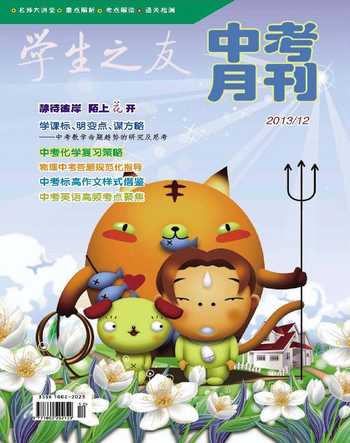例析代词的正误
彭现省
1.任何东西都不能在月球上生存
Wrong: Anything cant live on the moon.
Right: Nothing can live on the moon.
Note: anything, anybody, all, both等作主语时,一般不用在否定句中。若用在否定句中,该句则成了部分否定的句子。例如:他们并非都是学生。可译为:All of them are not students.故误句可译为:不是任何东西都能在月球上生存的。
2.他们每个人都有一本英语书
Wrong: Everyone of them has an English book .
Wrong: Every of them has an English book .
Wrong: They each has an English book .
Right: Every one of them has an English book.
Right: Each o f them has an English book.
Right: They each have an English book .
Note:当everyone(anyone)后面有of短语修饰时,要分开写成every one (any one).every是形容词,不可单独使用。each既可作形容词,也可作代词。作同位语时,谓语用复数形式。
3.中国以茶叶出名,这是众所周知的
Wrong: China is famous for tea. It is known to all.
Right: China is famous for tea. This is known to all.
Note:指代前面所述的整个情况时,常用this (that)而不用it.试比较:It is known to all that China is famous for tea.
4.我们当中没有人认识他
Wrong: No one of us knows him.
Right: None of us knows (know) him.
Note: none既可指人也可指物,后边可接of短语。No one ( nobody )只用于指人,后不可接of短语。
5.请再喝一杯牛奶
Wrong: Please have the other glass of milk.
Right: Please have another glass of milk .
Note: the other特指“两个中的另一个”;another是泛指“三个以上中的任何一个”。
6.“你借来一辆自行车了吗?”“是的,我刚借来一辆。”
Wrong:“Have you borrowed a bike?”“Yes, Ive just borrowed it .”
Right:“Have you borrowed a bike?”“Yes, Ive just borrowed one.”
Note: one和it虽都可用来指上文所述的事物,但用法有别。如上文中被指代的名词前是定冠词the,则要用it;当被指代的名词是不定冠词a (an)或any时,则要用one.

